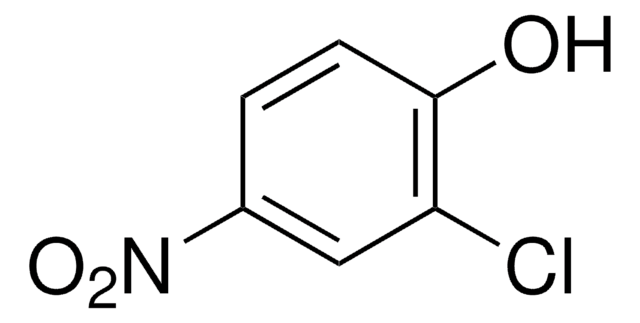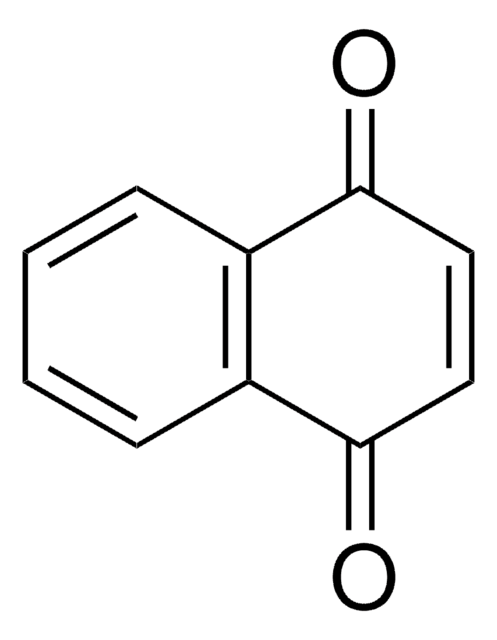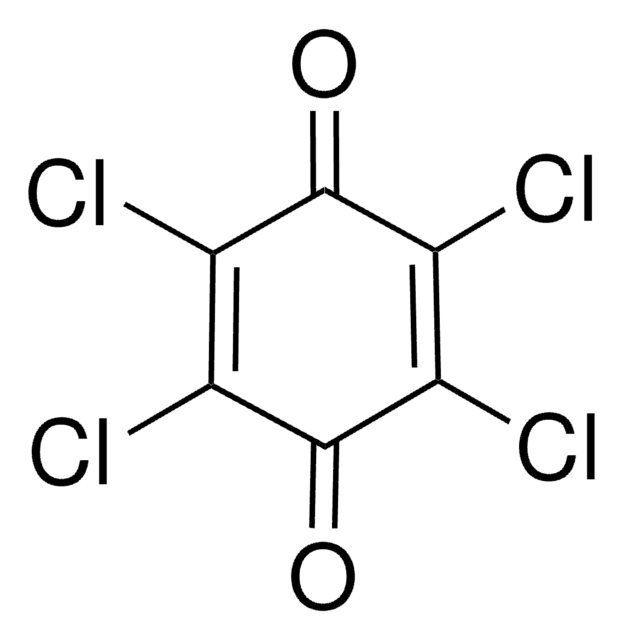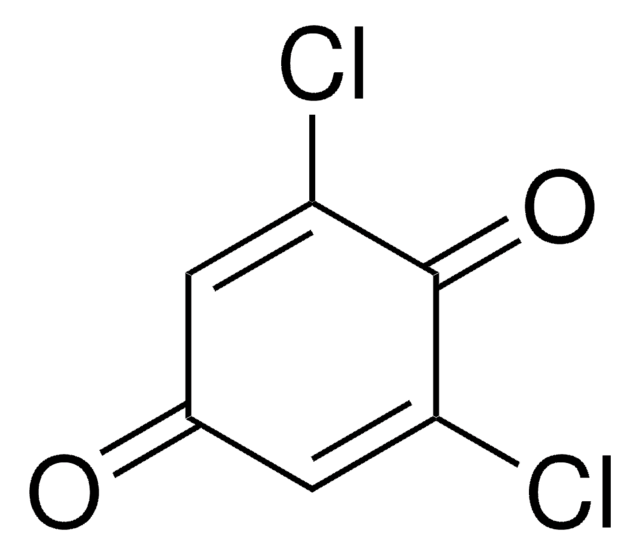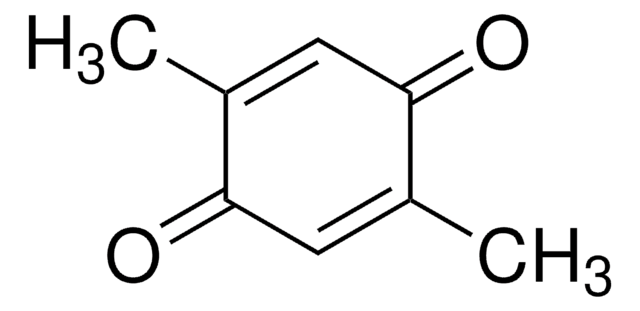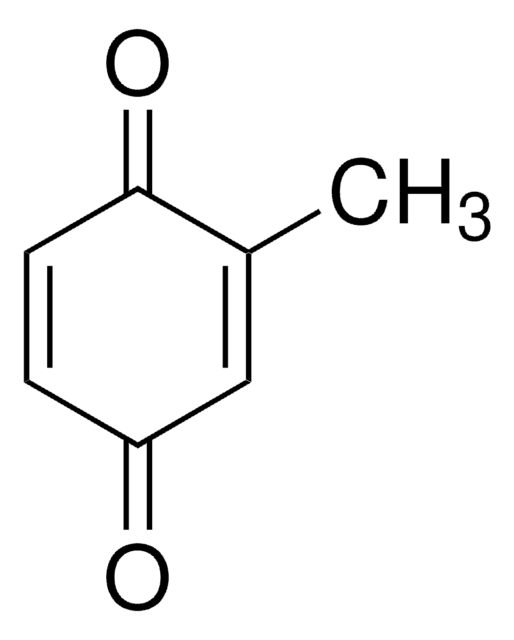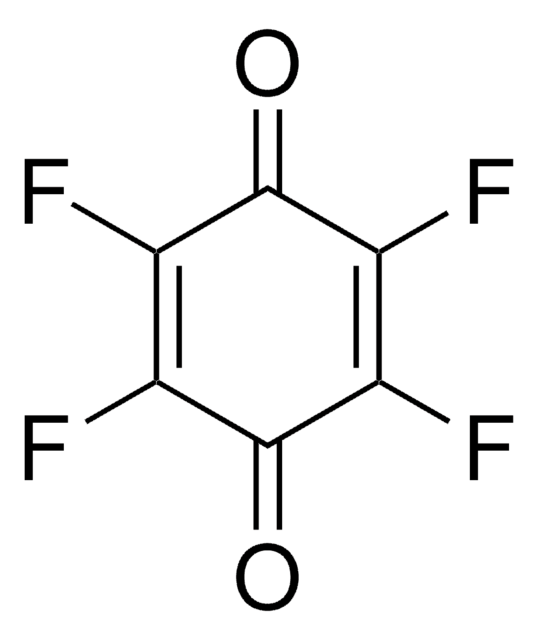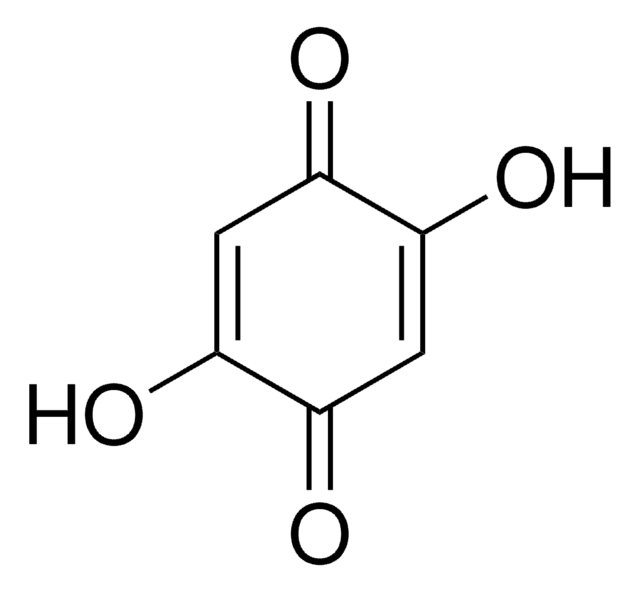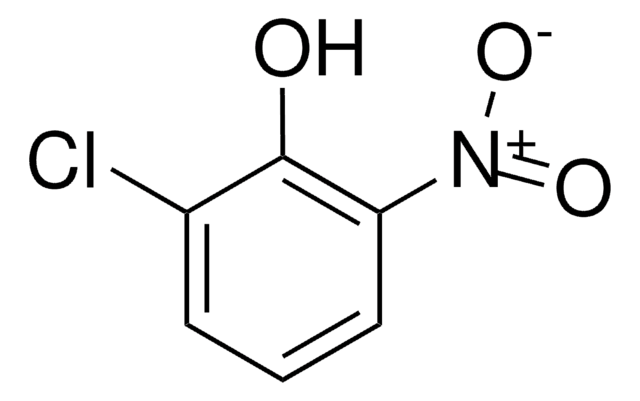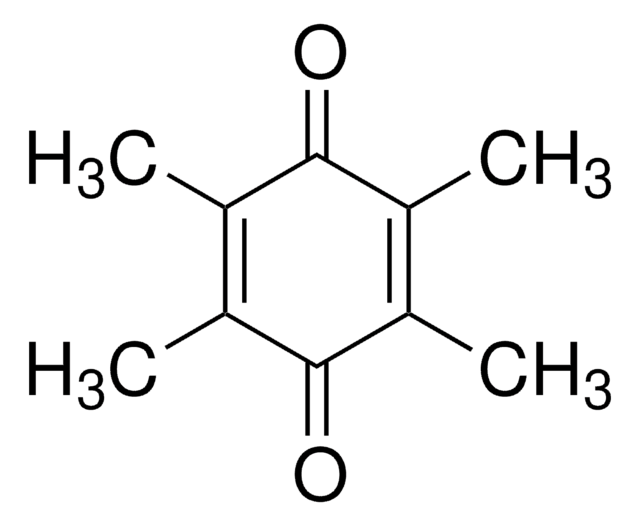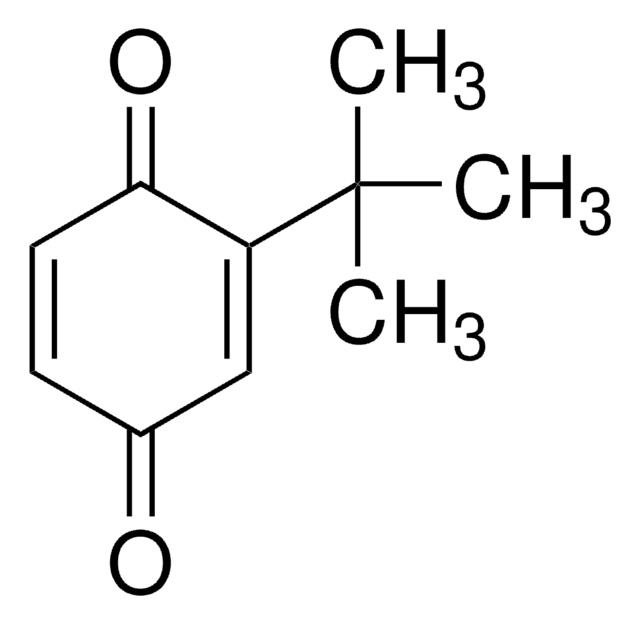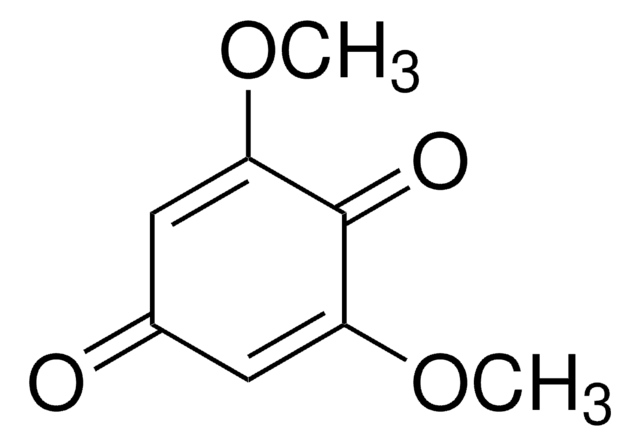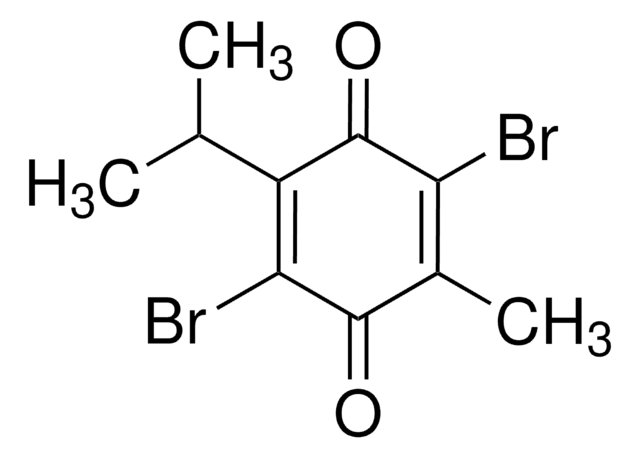343382
2-Chloro-1,4-benzoquinone
95%
Se connecterpour consulter vos tarifs contractuels et ceux de votre entreprise/organisme
About This Item
Formule empirique (notation de Hill):
C6H3ClO2
Numéro CAS:
Poids moléculaire :
142.54
Numéro MDL:
Code UNSPSC :
12352100
ID de substance PubChem :
Nomenclature NACRES :
NA.22
Produits recommandés
Niveau de qualité
Essai
95%
Groupe fonctionnel
chloro
ketone
Chaîne SMILES
ClC1=CC(=O)C=CC1=O
InChI
1S/C6H3ClO2/c7-5-3-4(8)1-2-6(5)9/h1-3H
Clé InChI
WOGWYSWDBYCVDY-UHFFFAOYSA-N
Catégories apparentées
Description générale
2-Chloro-1,4-benzoquinone is a quinone derivative. It is one of the intermediate formed during the degradation of 3,4-dichloroaniline in a dielectric barrier discharge plasma reactor. It is formed during lignin peroxidase catalyzed oxidation of 2-chloro-1,4-dimethoxybenzene. 2-Chloro-1,4-benzoquinone on dechlorination yields 1,2,4-trihydroxybenzene.
Application
2-Chloro-1,4-benzoquinone may be used in the preparation of chloro derivatives of prenylnaphthohydroquinone.
Mention d'avertissement
Warning
Mentions de danger
Conseils de prudence
Classification des risques
Eye Irrit. 2 - Skin Irrit. 2 - STOT SE 3
Organes cibles
Respiratory system
Code de la classe de stockage
11 - Combustible Solids
Classe de danger pour l'eau (WGK)
WGK 3
Point d'éclair (°F)
Not applicable
Point d'éclair (°C)
Not applicable
Équipement de protection individuelle
dust mask type N95 (US), Eyeshields, Gloves
Faites votre choix parmi les versions les plus récentes :
Déjà en possession de ce produit ?
Retrouvez la documentation relative aux produits que vous avez récemment achetés dans la Bibliothèque de documents.
Les clients ont également consulté
Aurora Molinari et al.
Bioorganic & medicinal chemistry, 13(11), 3841-3846 (2005-06-21)
From the Diels-Alder adduct between alpha-myrcene and 2-chloro-1,4-benzoquinone, a family of chloro derivatives of prenylnaphthohydroquinone have been synthesised and evaluated for their cytotoxicity against 14 neoplastic cell lines.
Emily N Vebrosky et al.
Journal of agricultural and food chemistry, 67(27), 7609-7615 (2019-07-02)
Shallow water systems are uniquely susceptible to environmental processes such as photolysis and hydrolysis that can influence the dissipation of pesticides into sediments. The fungicide dicloran has previously been shown to undergo photolysis and is reported to dissipate in soils
An ecologically effective water treatment technique using electrochemically generated hydroxyl radicals for in situ destruction of organic pollutants: Application to herbicide 2, 4-D.
Oturan MA.
J. Appl. Electrochem., 30(4), 475-482 (2000)
R Grey et al.
Journal of basic microbiology, 38(5-6), 371-382 (1999-01-01)
The white-rot fungus Trametes versicolor was used to study the influence of extracellular laccase activity on the degradation of 2-chlorophenol (2-CP) and the formation of metabolites under conditions, characterized by the absence of other phenol-oxidizing enzymes. 2-CP enhanced the production
P J Teunissen et al.
Archives of biochemistry and biophysics, 360(2), 233-238 (1998-12-16)
2-Chloro-1,4-dimethoxybenzene (2Cl-1,4-DMB) oxidation by lignin peroxidase (LiP) proceeds via the formation of the 2Cl-1,4-DMB cation radical as indicated by ESR and UV/vis spectroscopy. The products of the LiP-catalyzed oxidation of 2Cl-1,4-DMB were identified as 2-chloro-1,4-benzoquinone and the dimers dichlorotetramethoxybiphenyl and
Notre équipe de scientifiques dispose d'une expérience dans tous les secteurs de la recherche, notamment en sciences de la vie, science des matériaux, synthèse chimique, chromatographie, analyse et dans de nombreux autres domaines..
Contacter notre Service technique